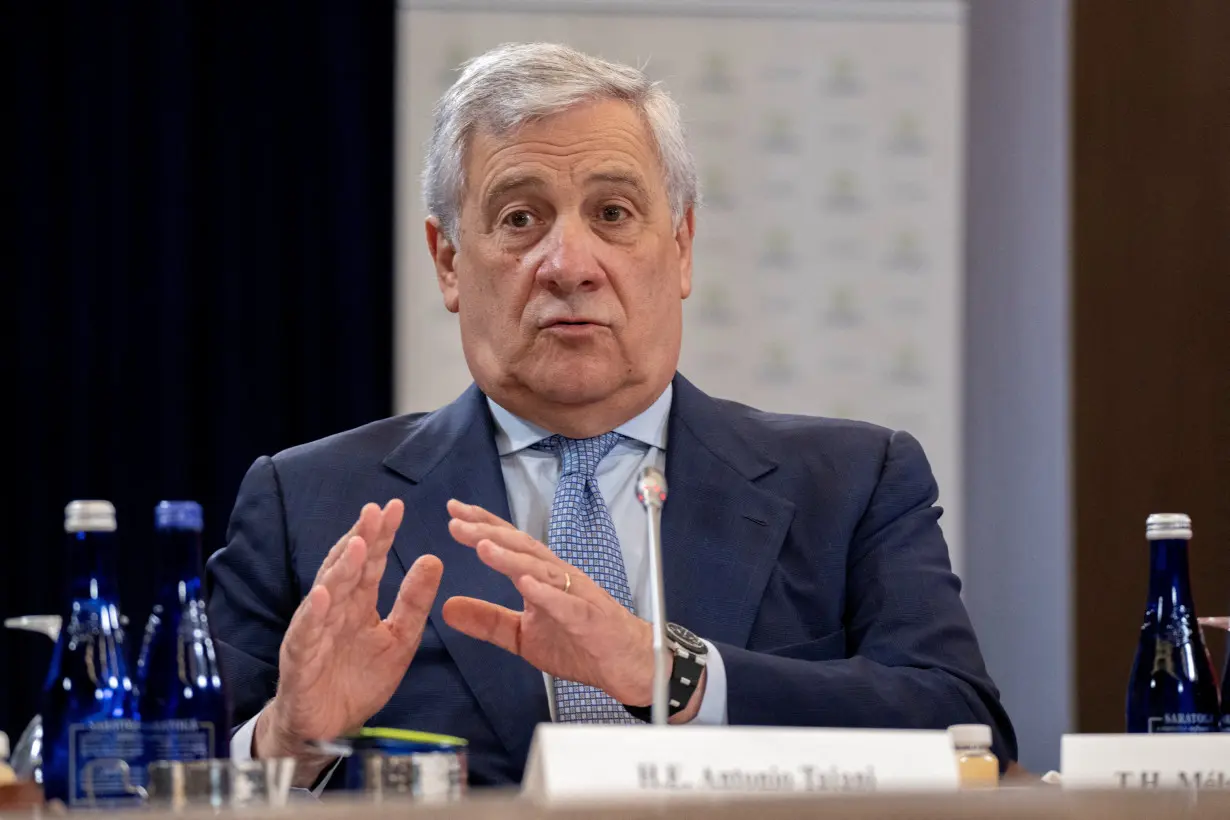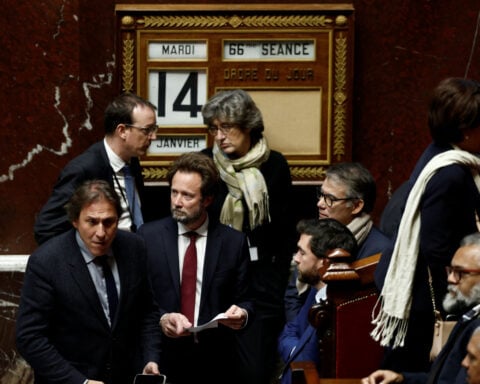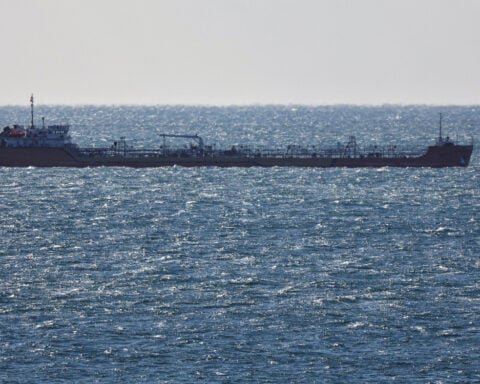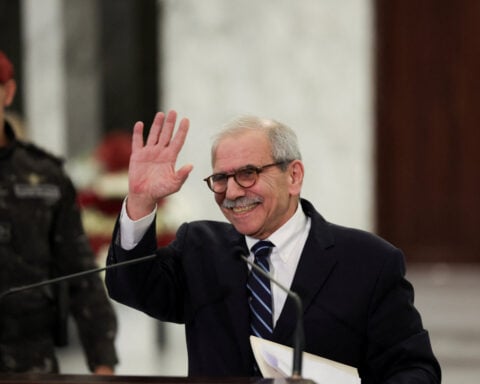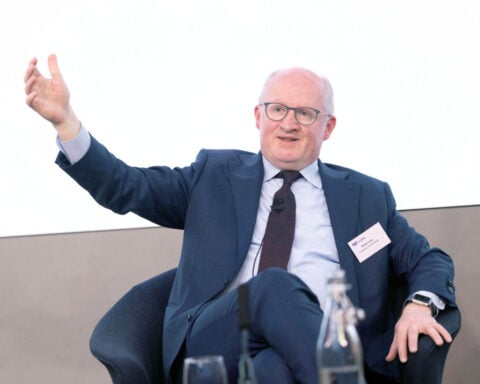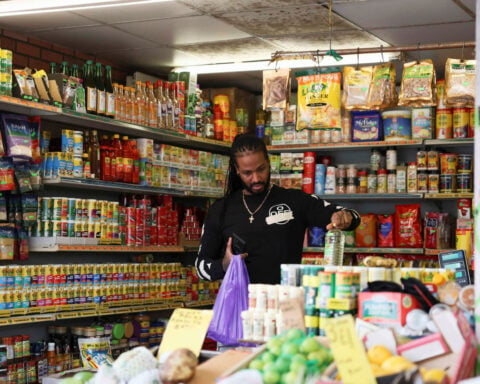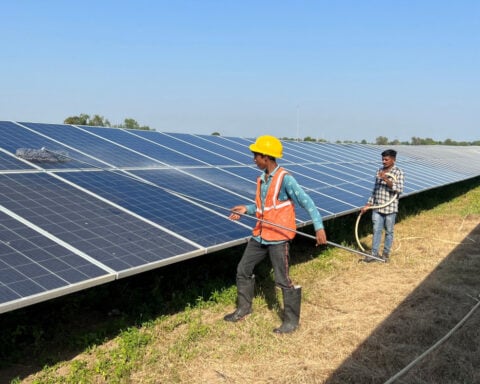By Angelo Amante and Marta Di Donfrancesco
ROME (Reuters) - Italy has decided to appoint an ambassador to Syria "to turn a spotlight" on the country, its foreign minister said on Friday, making it the first G7 nation to relaunch its diplomatic mission in Damascus since civil war consumed the nation.
Italy recalled all staff from its embassy in Damascus in 2012 and suspended diplomatic activity in Syria to protest at "the unacceptable violence" of the government of Bashar al-Assad against its own citizens.
Assad controls most of Syria after Iran and Russia helped him beat back rebel groups that turned against him 13 years ago, triggering a war that killed hundreds of thousands of people and displaced millions of refugees towards Europe.
Stefano Ravagnan, currently the foreign ministry's special envoy for Syria, was named as ambassador. He is due to take up his post shortly, Foreign Minister Antonio Tajani told Reuters.
Italy and seven other EU states last week sent a letter to the bloc's foreign policy chief Josep Borrell, asking the European Union to play a more active role in the country.
"Syrians continue to leave in large numbers, putting additional strain on neighbouring countries, in a period when tension in the area is running high, risking new refugee waves," the letter seen by Reuters said.
Along with Italy, the letter was signed by Austria, Cyprus, Czech Republic, Greece, Croatia, Slovenia and Slovakia. It lamented "the humanitarian situation" in the country which had "further deteriorated" as its economy was "in shambles."
"Borrell mandated the European External Action Service to study what can be done," Tajani said on Friday, adding that naming a new ambassador was "in line with the letter we sent to Borrel ... to turn the spotlight on Syria".
At present six EU embassies are open in Damascus -- Romania, Bulgaria, Greece, Cyprus, the Czech Republic and Hungary. None of Italy's Group of Seven partners -- the United States, Japan, Britain, Canada, France or Germany -- have reinstalled ambassadors to Syria.
(Reporting by Angelo Amante and Marta Di Donfrancesco; Editing by Crispian Balmer and Sharon Singleton)

 Michigan Gov. Gretchen Whitmer, a potential 2028 candidate, wants to find common ground with Trump
Michigan Gov. Gretchen Whitmer, a potential 2028 candidate, wants to find common ground with Trump
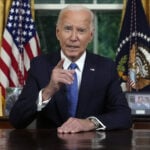 Biden promised to turn the page on Trump. Now he's being replaced by him
Biden promised to turn the page on Trump. Now he's being replaced by him
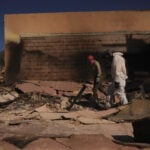 Firefighters prepare for increasing gusts following brief reprieve for LA area
Firefighters prepare for increasing gusts following brief reprieve for LA area
 Nippon Steel wants to work with Trump administration on US Steel deal, Mori tells WSJ
Nippon Steel wants to work with Trump administration on US Steel deal, Mori tells WSJ
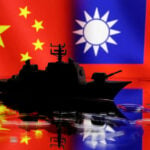 After cable damage, Taiwan to step up surveillance of flag of convenience ships
After cable damage, Taiwan to step up surveillance of flag of convenience ships
 BOJ will raise rates if economy, price conditions continue to improve, Ueda says
BOJ will raise rates if economy, price conditions continue to improve, Ueda says
 Manatees congregate in warm waters near power plants as US winter storms graze Florida
Manatees congregate in warm waters near power plants as US winter storms graze Florida
 AAPI adults prioritize immigration, but split on mass deportations: AP-NORC/AAPI Data poll
AAPI adults prioritize immigration, but split on mass deportations: AP-NORC/AAPI Data poll
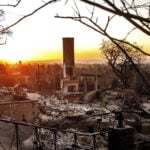 As Los Angeles burns, Hollywood's Oscar season turns into a pledge drive
As Los Angeles burns, Hollywood's Oscar season turns into a pledge drive
 As fires ravage Los Angeles, Tiger Woods isn't sure what will happen with Riviera tournament
As fires ravage Los Angeles, Tiger Woods isn't sure what will happen with Riviera tournament
 Antetokounmpo gets 50th career triple-double as Bucks win 130-115 to end Kings' 7-game win streak
Antetokounmpo gets 50th career triple-double as Bucks win 130-115 to end Kings' 7-game win streak
